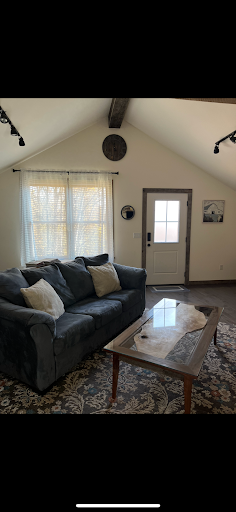By June Bunch – [email protected] – Contributor | Nov. 19, 2014 |
Hidden treasures such as frames and spokes emerge from shadows cluttered with tires worn from miles and memories. In the Asheville Bicycle ReCylery, bike-related desires reside at a finger’s reach, often at no cost.
Cyclist wanderers find the shop hidden behind the French Broad Food Co-op piled with bikes, swarmed with people and painted-in bicycle outlines and store hours written on a gigantic garage door.
Upon entering, a sign above the tool table reads, “Build a bike from recycled parts, use funny looking tools, share.”
Tools shine in kids’ hands, who seem unaccustomed to wielding wrenches or chain checkers. Tire pumps stand tall, worn, respected. Hex keys fall and disappear, clanking somewhere unseen.
Dominique Amarante, a frequent patron, skims through tire protectors while newcomers walk around, dazed.
“It’s one of the coolest things in Asheville,” Amarante said.
Onlookers nodded in agreement.
No inch of space goes wasted. Ceilings hang bicycle rims, walls hitch handlebars and floors weigh down with frames. A desk in the corner provides tags to begin claiming used-bike parts.
Customers come to learn skills such as changing tires or fixing frames mainly employing used parts. They service everything themselves and keep the bikes after tweaking them.
“All this stuff’s been donated,” said Nathan Sanders, a volunteer for four years, pointing toward the many rows of bike frames tagged and ready to be worked on.
Sanders, a Florida native, said he began volunteering at the shop after convincing himself bikes could save the world, making everyone healthier while eliminating exhaust from vehicles.
“It’s an obsession,” he said.
Pointing to used-bike parts, Sanders said the shop lets them go free of charge in exchange for work trade. New parts, however, cost. The shop sells new parts for little more than they pay to stock them, in case someone can’t salvage anything used.
“We round it to the nearest 50 cents. If a tube costs $2.43, we sell it for $2.50,” said Joseph Crawley, a founder of the shop.
As a nonprofit, any money made sustains the shop and keeps shelves stocked, a system which ensures volunteers have enough tools to give patrons access to everything at once.
Patrons use these tools to fit various used parts together, at least in theory.
Oftentimes, volunteers use creativity to fix used parts too hard to restore using traditional methods. The shop volunteers call the learning environment unique and challenging.
“Sometimes you really have to stare at things and figure something weird out to make things work again,” Crawley said.
Crawley began making things work in late 2001. He and his friend Michael Adams started the shop in a shed after returning to Asheville from a bike trip across the country.
They moved the ReCyclery quite a few times before finding its current home.
“We first moved from the shed in Woodfin,” Crawley said, counting his fingers to review the number of times the shop has relocated.
There was the Asheville Community Resource Center, a basement on Hillside, the Phil Mechanic building, a space by the river and finally the location downtown. He said after seven years of residing downtown, he planned to stay put.
Years passed behind the co-op, and countless numbers of volunteers came and went, said Zoe Siegler, a volunteer for seven years.
Siegler began volunteering through Warren Wilson College and felt like she found her “place,” she said.
“I’ll come home and be all giddy about bikes and can’t sleep,” she said, glancing lovingly at a shop bike she recently fixed.
Siegler and Sanders make up only a portion of the ReCyclery’s long-term volunteers. Many patrons merely intend to build their own bikes and wind up volunteering as a hobby. The open structure of the program invites them in, at least in the cases of Sieglar and Sanders.
According to Crawley, “We are a lot more loose in structure than I think most of the programs are.”
He said the staff seldom holds meetings and there are few rules.
Volunteer work is an atypical way to run a bike recycling program, but the easygoing nature of their shop works. People come and go, and help remains steady.
“I have a skill and I like sharing it because any day can be a memorable experience,” Siegler said.
Volunteers express satisfaction when inexperienced patrons ask for help. They see many people coming through who haven’t ever learned to use basic tools like wrenches or bolts. It gives the workers a sense of pride, Siegler said.
“I can help you fix it yourself,” she tells them, walking the visitors through the steps. She said pretty soon they are finding a wrench and fixing their bikes.
Sure, some of the parts need extra love, but volunteers always rise to the challenge. They agree the added work is worth the cause.
“Our whole point is to empower the community,” Sanders said.
A number of people the shop assists can’t afford retail priced bicycles, according to Sanders. So they build bikes for themselves and pay with volunteering hours.
“Usually I make people work between two and four hours for their bike. We sell bikes cheap, so I kind of estimate how much we would sell it for,” Sanders said.
Crawley said the team works together to ensure no matter what the circumstance, customers can leave with a bike.
“Just show up,” Sanders said.


















